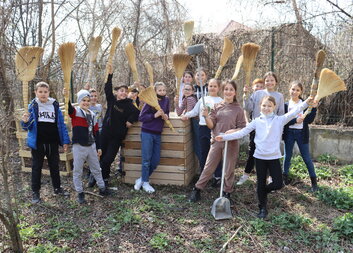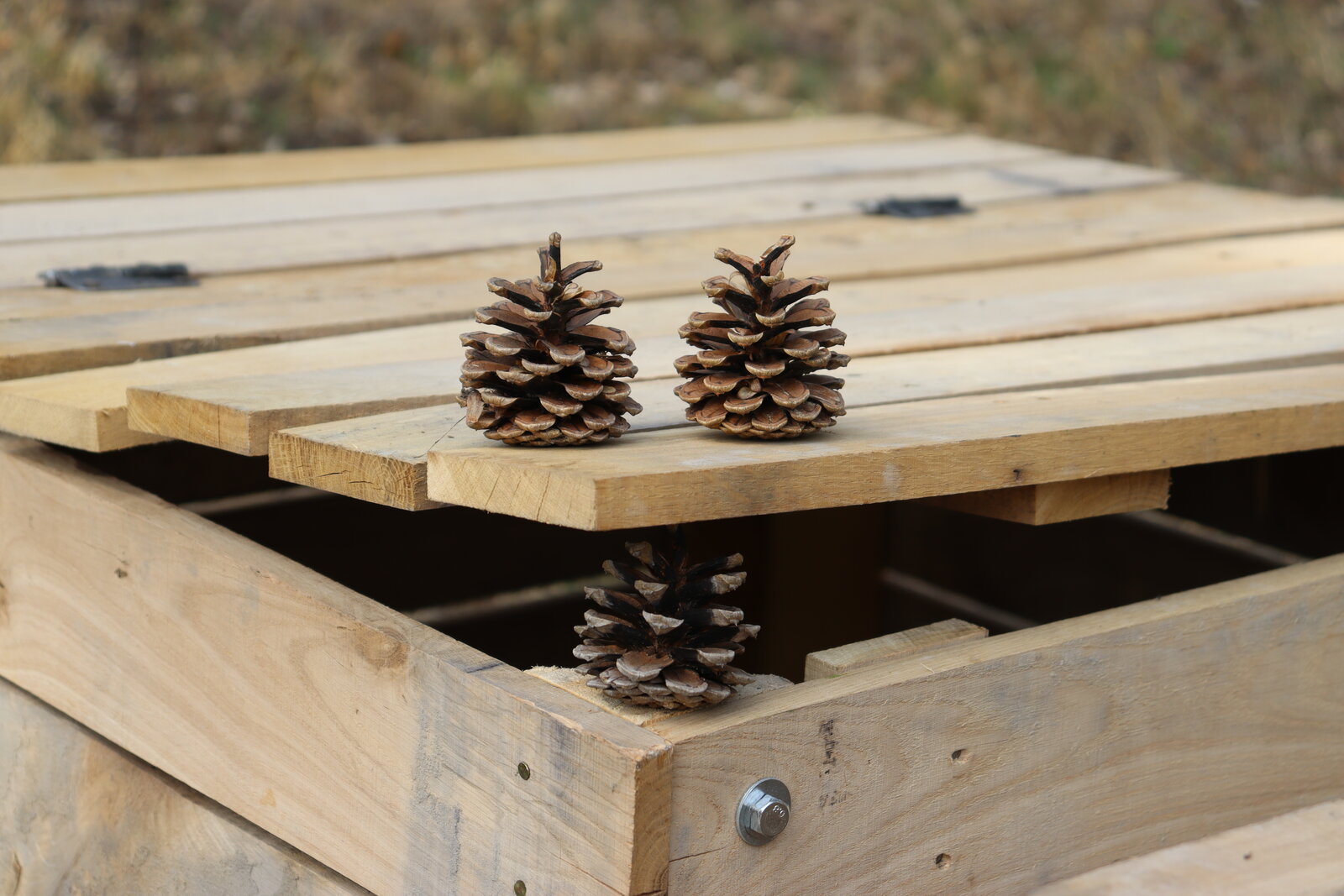In Moldova, improper waste management causes about 10.7% of greenhouse gas (GHG) emissions, compared to the global average of about 3%. The amount of solid household waste is constantly increasing because the rate of sorting, recycling and recovery of waste is very low in the country. Caritas Czech Republic develops a functional and sustainable waste management system in the city of Criuleni to not only fight against environmental problems, but also to improve the health and quality of life of local citizens.
Towards sustainable waste management
It is also worrying that only between 60 and 90% of urban household waste is covered by specialised waste collection services, while in most rural areas it is disposed of unauthorised. Industry experts say the sector has the potential to reduce greenhouse gas emissions from landfills by up to 20% by implementing recycling and waste recovery measures. The authorities have already foreseen in the Environmental Strategy for 2014-2023 the construction of 7 solid household waste landfills with modern logistics, which implies a responsibility-based cooperation between all actors involved in waste production, management and recycling.
Historically, the Republic of Moldova has followed the approach of disposing of waste by storing it in landfills, with currently more than 1,100 landfills with an area of about 1,224 ha in operation. Caritas Czech Republic, through the project "Development of a functional and sustainable waste management system in the city of Criuleni" continues to be at the forefront of the fight against environmental problems in Moldova, aiming to improve the health and quality of life of citizens. The initiative, so far regional, is supported by the Municipality of Criuleni, the waste management company Comunservice Criuleni, the non-profit association "Everybody Contributes For Change", Caritas Slovakia, Slovak Aid and last but not least the citizens.
Separate waste collection promotes circular economy
"Separate waste collection is fundamental in promoting a circular economy, capable of reducing environmental impacts and contributing to the creation of new job opportunities. This initiative must be seen as a collective responsibility of each and every one of us to ensure a sustainable future. This is what we want both citizens and waste collection workers to understand," says project manager Alexei Grajdian.
Separate collection of solid waste is a major problem for the Republic of Moldova, especially for small towns like Criuleni. Until recently, waste collection companies did not have a clear picture of how separate waste collection could be achieved, but the help provided by Caritas Czech Republic has made a big difference.
"With the installation of the 11 new waste collection platforms the process has become more organised, the total volume of solid waste is decreasing and the costs are significantly reduced - by doing so we are reducing pollution and making our contribution to a cleaner environment. The trainings organised as part of the project have helped us improve our knowledge and reset our priorities. Even the workers have noticed that the work is easier and the collection platforms now look civilized,” says Olga Ohințeva, director of Comunservice Criuleni Municipal Enterprise.
Protecting nature by composting
Waste is not only an environmental problem, but also an economic loss. On average, Europeans produce 481 kg of municipal waste per year. Much of this is sorted, recycled or composted, while some ends up in landfills. How can we change the way we produce and consume so that we produce less and less waste while using all waste as a resource? One way out is composting.
"Caritas Czech Republic continues to support our efforts in making our locality an environmentally friendly city. The city of Criuleni has received as a gift a vegetable mass shredder, which will allow us to move to a new stage in the application of innovative solutions to protect nature - composting. Thus, the streets of Criuleni will have a neater, more ecological and why not - more European look,” reports Ion Sclifos, Mayor of Criuleni.
Within the same project, Caritas Czech Republic donated 30 composting bins.
This is a promising start, taking into account that Criuleni generates about 2000 tons of waste per year, of which 900 tons is organic waste.
Biodegradable waste, mixed with inorganic waste, forms a highly toxic mass that pollutes the air, soil and water resources. In this case, composting is the most viable solution to recover biodegradable waste.
Nadejda Cebotari, composting trainer says: "Composting is the human intervention in the natural process of decomposition and transformation of organic materials into rich soil. When you walk through the forest, if you brush the leaves aside for a moment, you will discover rich, crumbly soil. This is the result of decomposing leaves, branches and conifer needles. You can achieve the same result at home by turning food and vegetable scraps into valuable soil that can reduce the need for fertilisers and pesticides in your garden. In addition to the savings from transporting the waste, the composting process could generate a new branch of the economy, with a focus on protecting the environment, making the most efficient use of natural resources, including the promotion of modern technologies for recycling and recovering waste.”
Producing compost at home is very simple and more reasonable
"Vegetable waste is in fact a small treasure that ends up in the bin every day,” says Serghei Lîsenco, a resident of Criuleni, and adds that most of the components and necessary elements for composting are those found in the home and garden. “Composting is like a cooking recipe - if you follow the proportions and take all the ingredients into account you will get the result you want. I try to share my experience, telling colleagues, neighbours, relatives... that from organic and biological waste we can make excellent compost, which they now buy from garden centres, while it would be very simple and more reasonable to produce it at home,” Serghei thinks.
Although it may seem hard to believe, but each of us, just by using selective waste bins correctly and starting the composting process, automatically becomes part of the planet's greening process. Thinking about these benefits, the effort we will make is tiny, but it is of crucial importance: we need patience, perseverance and more attention to "what?" and "where?" we throw.
The activities described are part of the project "Development of a functional and sustainable waste management system in the city of Criuleni", implemented by Caritas Slovakia and Caritas Czech Republic, funded by SlovakAid.
Separate waste collection actions are carried out within the project "Building a functional and sustainable waste management system in the city of Criuleni" funded by the Slovak Agency for International Development Cooperation, implemented by Caritas Slovakia and Caritas Czech Republic.














